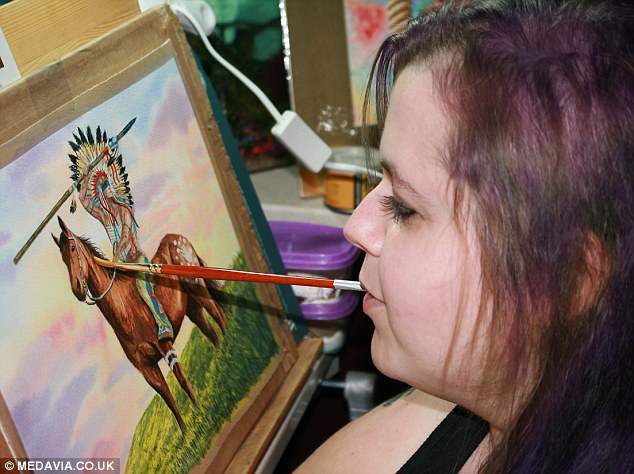by Susan Schaffer, Chain of Challenges
Growing older is not a solo journey—traveling companions often include infirmities and other gradual or sudden changes. How you welcome these additional “gifts” is up to you. One option is to dwell on these challenges you are suddenly facing. The other choice is to focus on what you can do and make alterations whenever necessary. As a person who has a lifelong disability, I can personally affirm that coping is nothing new.
This article outlines my personal strategy for dealing with life’s issues by dividing them into categories. Let me know what you think or offer your own ideas. My contact information is at the end. This article does not take the place of medical advice; it merely encourages you to look inside yourself to figure out some non-medical solutions.
Psychological You are still you. There may be some undesirable additions, but incorporate them into your life. Your foundation still exists, so recall your likes, desires, etc., and proceed as best you can. Take a personal inventory and decide what changes or additions you want to make. Mindfulness meditation has proven to be a positive component of wellbeing. It cleanses the body, improves concentration, and decreases impulsive angry behavior. Talking to a counselor is a very good way to gain perspective.
Spiritual This area can impact self-esteem, confidence, faith, etc. If you have faith in God, it may make things easier knowing you’re not alone and everything happens for a reason. The stories of hardships in the Bible offer insights into our own struggles. Another major benefit to a life of faith is the connections you make with other faith members. Once a disabled person joins a group, they are appreciated for their contributions and the disability is no longer a barrier.
Societal The stigma about disability has diminished but still exists. People may stare or make you uncomfortable in public. Do not allow that to ruin your spirit or keep you from going somewhere. A good way to cope is to take the initiative and smile at others. Mostly, people just do not understand. Seeking pity is not helpful, so I don’t recommend it as a method of coping. People will tire of your sob stories and eventually resent you. It’s fine to accept someone’s offer to pick something off the floor (gravity is not my friend) but I do not make a habit of it.
The other part of this issue is physical accessibility. Planning ahead before venturing out is just logical. Think about using the bathroom, time constraints, and mode of travel. If you need public transportation, study the bus schedules. It’s easy once you learn routes.
Special buses are an option but are often unreliable. They may come late or leave early, so be prepared. You will likely be trading convenience for reliability. Another issue is attendant care, and this can be a big one. A good idea is always to make other arrangements—have a backup plan.
Social Support is crucial to your success in coping. Life is interdependent—we rely on others. Think of the people you connect with and what you do with them. Have they treated you differently since you have gotten weaker? If so, seek others who can be positive influences. Join social or religious groups. That is a way to meet people and have something to talk about beyond the disability. It is a sure way to get respect and be known for your contributions.
Physical The obvious component of this category is exercise. However, almost everything counts. Weaving a potholder and lifting weights are both therapeutic; the idea is to make the activity enjoyable. It’s good to keep track of progress in a journal so you can see how far you have come. How long does it take to get dressed or how much help are you getting? Compare how much time is needed in week 1 and week 5; any little improvement counts. Explore using devices such as reachers (sticks to help pick things up) or acquiring a therapy dog.
Accessibility at home is vital. There are many ways to alter things to make life easier. If steps lead to the front door, consider a temporary or permanent ramp—or moving. Now, let’s explore some general ideas for rooms. The bedroom may have a high bed, dresser, and closet. Perhaps get a thinner mattress, lower dresser, and lower or stand-alone clothing rack. Getting under the kitchen sink may mean removing footplates and opening cabinets underneath. There are other rooms and alterations to consider, because every situation is different.
Vocational If the job has become difficult, speak to your manager about accommodations. Employers may be unfamiliar with the fact that 59% of them are free, there are tax breaks available, and most people make alterations to make the job their own, so be sure to ease their initial concerns. If that’s not an option, consider applying for another one. CareerLink, AARP, and the Office of Vocational Rehabilitation (OVR) can help. The computer provides a multitude of options. Data has shown that places that hire disabled workers have higher productivity, retention rates, and profits. If your current job is not an option, you may want to enroll in higher education.
I will reach out to anyone who is struggling with a disability. I have a master’s degree in rehabilitation and 30+ years of experience. I have written manuscripts, facilitated groups, been on panels, presented, and more. I would be glad to help someone with a disability awareness program or project. Information is a valuable commodity and I would like to help people manage what can come with old age.
My email is [email protected] and my website is chainofchallenges.com.






